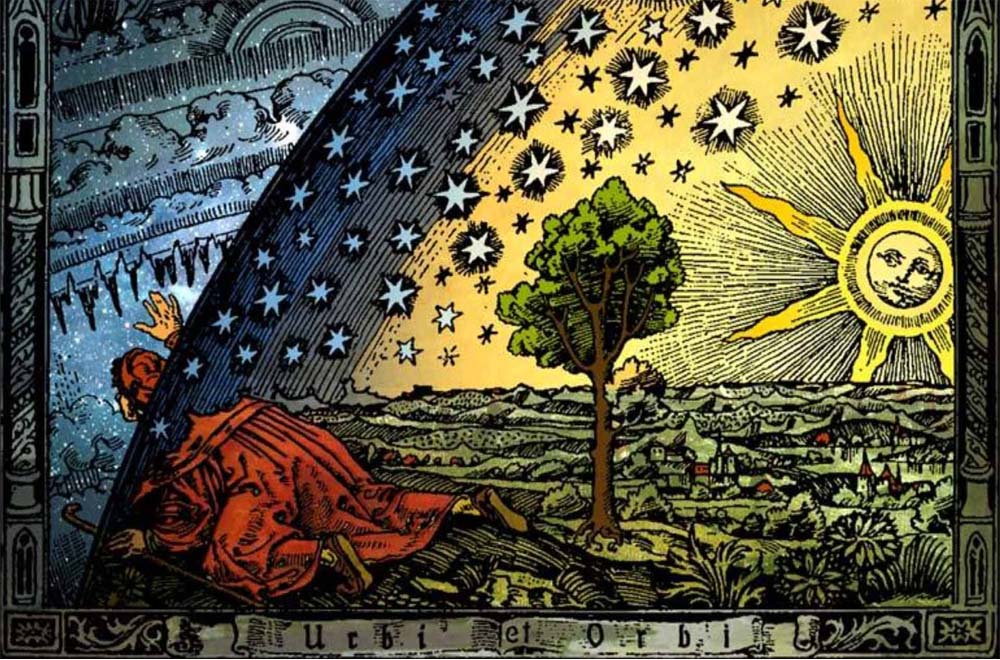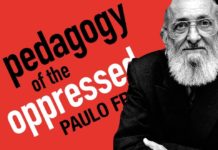Disclaimer: The Eqbal Ahmad Centre for Public Education (EACPE) encourages critical and independent thinking and believes in a free expression of one’s opinion. However, the views expressed in contributed articles are solely those of their respective authors and do not necessarily reflect the position or policy of the EACPE.
”A knowledge of the historic and philosophical background gives that kind of independence from prejudices of his generation from which most scientists are suffering. This independence created by philosophical insight is—in my opinion—the mark of distinction between a mere artisan or specialist and a real seeker after truth.”
(Albert Einstein, Letter to Robert Thornton, 1944)
Science has proven itself to be a uniquely successful human project. In the modern world, this field of inquiry attracts the most attention when it proclaims anything and everything! The reason is simple: science is considered an objective attempt to represent reality to the best of human ability.
Long ago, humans thought that the causes of ill-health, famine and accidents were caused by witches and wizards. The medieval history of Europe is filled with cruel charges of heresy, magic and witchcraft particularly on older women, who were burnt at the stake. [1]
However, the situation changed for the better since Europe has climbed from its dark superstitious past of unreason and terror through defeating the forces of the Church. As Dr. Pervez Hoodbhoy, a distinguished writer and physicist, explained in his article ‘The Rise of Unreason’:
”Some 300 years ago the age of reason lifted Europe from darkness, ushering in modern science together with modern scientific attitudes. These soon spread across the world. But now, running hot on its heels is the age of unreason. Reliance upon evidence, patient investigation, and careful logic is giving way to bald assertions, hyperbole, and blind faith.” [2]
If it were not for the forces of science and reason, Europe would still be burning witches, worshiping saints as gods and smashing the heads of babies on rocks as prescribed by the Bible in the following passage:
”Blessed shall he be who takes your little ones and dashes them against the rock!” Psalm 137:9″ [3]
Later, Europe undertook to dominate the world by the use of science: there is no other secret of success.
As Dr. Pervez Hoodbhoy explains in another article:
”The secret of Israel’s strength is not hidden in its weaponry. Instead this still-expanding and still-colonising apartheid settler state uses the same magic that enabled just a handful of 18th-century Englishmen to colonise the entire Indian subcontinent. Let’s recall that in ruling over 200m natives for 250 years, at no time did Britain have more than 50,000 white soldiers on Indian soil. Although better guns and cannons gave them an edge, in fact their real not-so-secret weapon was much bigger.
That weapon was a system of organised thought based upon a rational and secular approach to life, a modern system of justice, and a new set of social relations. This was sustained and enhanced by Enlightenment-era education that de-emphasised rote learning of the scriptures, was this-worldly and future-oriented, and which focused upon problem-solving skills using systematic, scientific thinking. Having invented modern means of communication such as railways and telegraph, a mere island in the North Sea could boast of an empire over which the sun never sets.
In a nutshell, imperialist conquests showed that brains would rule over brawn — a stark truth that got still starker with time. But where are brains produced? Obviously in the womb but it is in schools, colleges and universities where minds are shaped and sharpened. Hence, these days everyone and their uncle rush to one single conclusion: fix education and this will level the playing field, greatly diminishing or perhaps ending the inequalities of power.” [4]
So what is the magic that is science?
It is answered by the discipline of philosophy of science.
Philosophy of science concerns itself with clarifying the differences between science and pseudo-science, such as astrology.
An article by a scientist turned philosopher in Scientific American claimed:
”There are lots of things philosophers of science study, but one central set of concerns is what is distinctive about science — how science differs from other human activities, what grounds its body of knowledge, what features are essential to scientific engagement with phenomena, etc. This means philosophers of science have spent a good bit of time trying to find the line between science and non-science, trying to figure out the logic with which scientific claims are grounded, working to understand the relation between theory and empirical data, and working out the common thread that unites many disparate scientific fields — assuming such a common thread exists.”[5]
Science used to be part of philosophy; but soon became too big to be part of the latter. That is because it is practical and reality-oriented, focusing on evidence rather than speculative metaphysics. Some still see science as being part of philosophy calling it “natural philosophy”.
Defenders of philosophy admit that without science, particularly physics, philosophy becomes nonsense.
As one author explained:
”They began to separate in the 19th century, when the term science was coined, and over the course of the 19th century, it replaced “natural philosopher.” The two had begun to branch out earlier than that with the development of the hypothetico-deductive model, which locks science into a particular epistemology, beginning with Galileo and really becoming formalized by Descartes in 1637.
There are, of course, a great many other names, and it was a long, slow process. But I’d say that the split really began in the 16th century and was largely complete by the 19th. People identified a particular mode of acquiring knowledge by forming hypotheses and testing them against experiments, replacing earlier philosophical modes of trying to explain the world in terms of introspective models and references to sacred texts.” [6]
The reliance of a specific set of techniques, called the scientific method sets science apart from other methodologies and philosophies. It is this rigorous methodology that has allowed science to dominate philosophy.
I can see why Stephen Hawking declared:
”Most of us don’t worry about these questions most of the time. But almost all of us must sometimes wonder: Why are we here? Where do we come from? Traditionally, these are questions for philosophy, but philosophy is dead.”
“Philosophers have not kept up with modern developments in science. Particularly physics.”
The debate can get complex but the facts are clear for anyone who is willing to use reason and suspend superstitious hatred of science.
Some of these fundamental concepts are studied in this realm:
Epistemology is a hot topic in philosophy of science: this discusses the method, validity and scope of knowledge itself. And it focuses on the acceptance of opinions by people as true as well its justification.
Empiricism is about the observational reality that is experience by the scientist in his research: this is fundamental to science. It is philosophically associated with science.
Induction is reasoning where the premises support the conclusion but does not necessitate it. In philosophy of science, the ‘problem of induction’ is a topic of much speculation and argumentation.
Deduction is reasoning where the premises, if true, necessitate that the conclusion is also true, if the rules of logic are followed.
Occam’s razor means that entities must not be multiplied beyond reason. In practice, this means the simplest theory is to be preferred over the complex one.
Falsification is a method for separating science from non-science by linking the effect with the cause. So instead of blaming witches and Jews for famine, earthquakes and floods, science identifies solar flares, tectonic shifts and fluid dynamics as being responsible.
Paradigm Shift is a term associated with Thomas Kuhn who divided the history of science into two fundamental categories: normal science and revolutionary science. The former is when scientists develop an accepted theory and the latter is when anomalies reach the critical stage of overwhelming the old scientific theory. This results in a new view of reality a ”paradigm shift”.
In conclusion, science is a powerful tool for discovery and understanding; it has its own methodology and set of principles. The philosophy of science analyses the foundations and implications of this human enterprise. As can be expected, philosophy is concerned with the ‘Big Questions’ i.e. metaphysical inquiries into the nature and purpose of man and the universe so the philosophy of science does the same but with science.
A contributed article by Zalghi Khan







